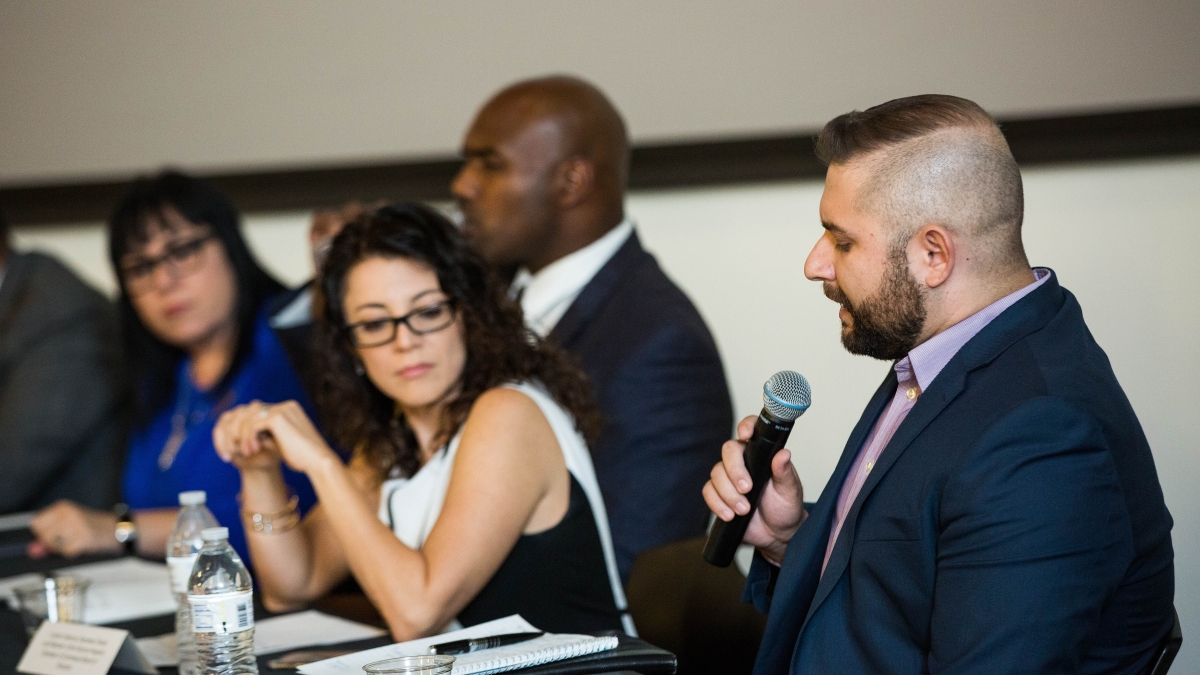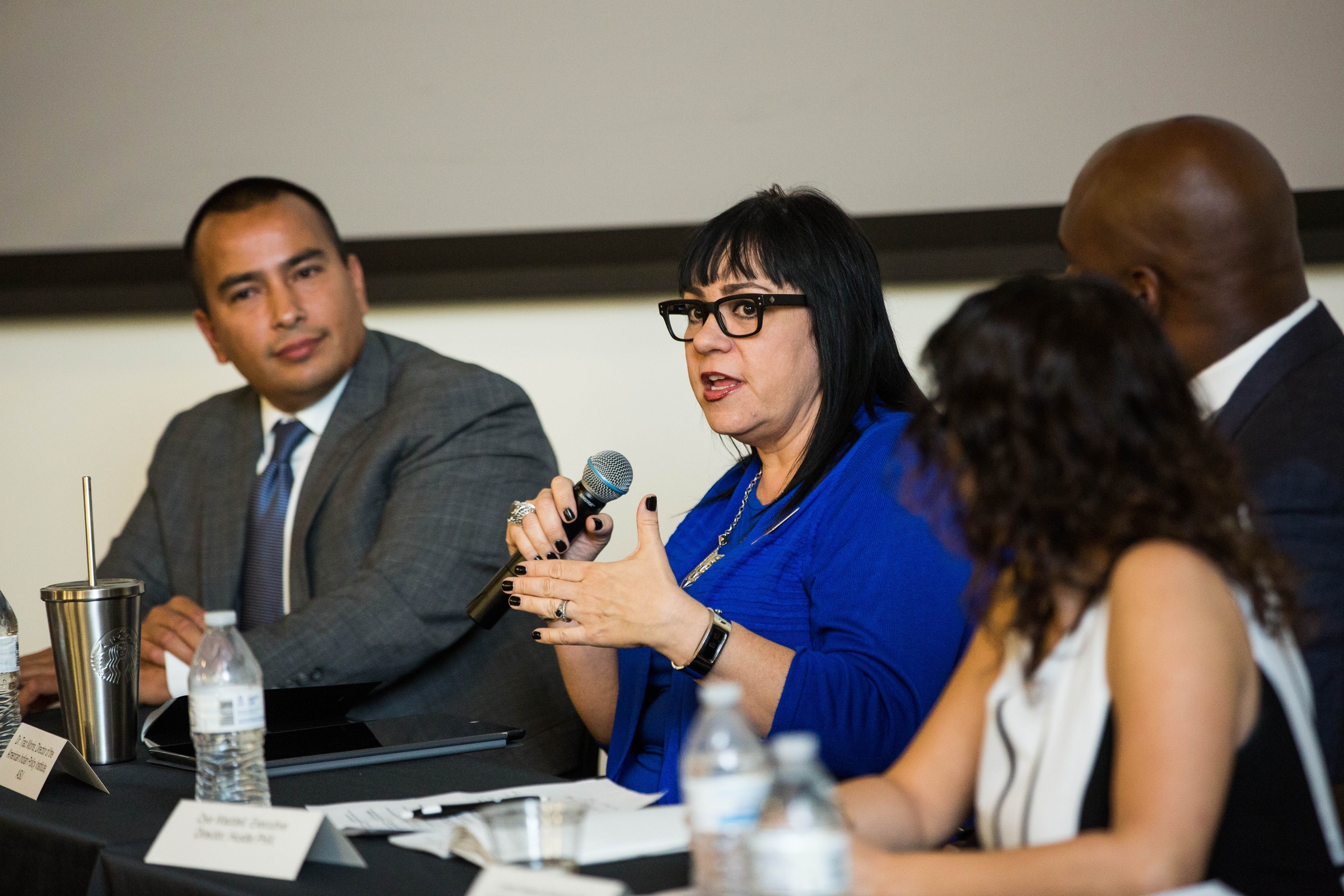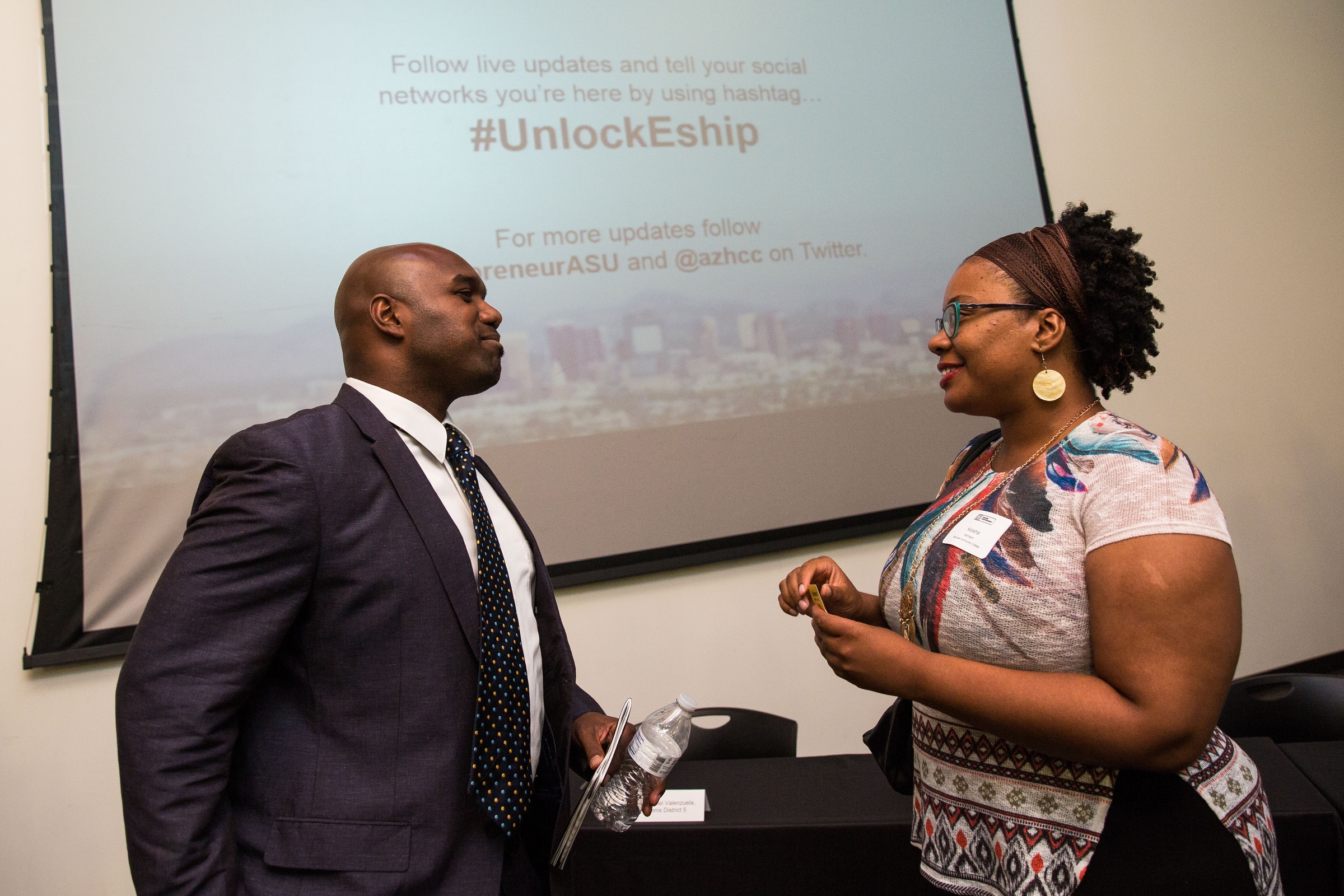One way to unleash the enormous potential of minority entrepreneurs is to back away from the word “entrepreneur.”
People who have good ideas to fill a need in their communities can be put off by the concept, thinking it’s only for high-tech app inventors or businesspeople who want to earn millions, according to a panel of experts gathered by Arizona State University this week.
“There is this glamorization of ‘entrepreneur,’ and that starts creating a false expectation in people who want to manufacture their dream,” said Edgar Olivo, director of Fuerza Local, the Spanish-language accelerator program that’s part of Local First Arizona. He was one of four business experts who spoke at “Unlocking Entrepreneurship,” an event sponsored at the Downtown Phoenix campus by ASU’s Office of Entrepreneurship and Innovation, and the Arizona Hispanic Chamber of Commerce.
“In my classes I talk about, ‘Did you ever sell lemonade as a kid? You’re an entrepreneur.’ It’s in all of us,” said Olivo, who noted that landscapers, house cleaners and graphic designers are all legitimate entrepreneurs who need help growing their businesses.
Native people don’t embrace the modern interpretation of “entrepreneur,” said Traci Morris, one of the panelists and director of the American Indian Policy Institute at ASU.
“In Indian Country, we’re a little different. That’s not a good word so it needs to be redefined. It’s associated with capitalism, making money, and that’s not a humble place to be. You’re not serving your community, you’re serving yourself,” said Morris, the owner of Homahota Consulting in Phoenix and a member of the Chickasaw Nation of Oklahoma.
“I have to teach my students that ‘you’re already doing this, it’s happening, you’re just not calling it what everyone else is calling it.’ And that’s empowering to them.”
The panelists said that underrepresented communities need extra help launching and nurturing new businesses.
They need three things, said Oye Waddell, executive director of Hustle PHX, an incubator that provides mentoring and support for urban entrepreneurs.
“They need access to information — the intellectual capital. The second piece is the social capital, which many overlook. The difference between wealth and poverty is relationships, and if you’re not in the network, you’re sometimes left out.
“The last is financial capital — access to money.”
Daniel Valenzuela, a Phoenix City Council member, and Traci Morris, director of the American Indian Policy Institute at ASU, spoke on the panel at "Unlocking Entrepreneurship" Wednesday night in downtown Phoenix. Photo by Deanna Dent/ASU Now
Lorena Valencia is the owner of Reliance Wire and Cable, which manufactures materials for the automobile industry. She said mentorship is especially important for minority entrepreneurs.
“If you can’t see it, you can’t be it,” she said.
The panel discussion is one way that ASU is continuing to expand access to opportunity, said Sethuraman Panchanathan, the executive vice president of ASU’s Knowledge Enterprise Development and the university’s chief research and innovation officer. He introduced the panel.
“ASU is the only public university in the nation where the social and economic demographics of our students truly matches that of our nation and our state,” he said.
Oye Waddell, executive director of Hustle PHX, an incubator that provides mentoring and support for urban entrepreneurs, talks with Keisha Harrison at the "Unlocking Entrepreneurship" panel event. Photo by Deanna Dent/ASU Now
“If you look at the diversity of the talent we have and how it’s being realized, how it’s being unlocked, we have not done a very good job with that nationally,” he said. “ASU never for a moment imagines we can solve all the problems ourselves — we can only do it as partners with our community.”
The panelists stressed that minority entrepreneurs need more information about resources. Daniel Valenzuela, a member of the Phoenix City Council, said that one success has been the Hive @ Central, a space in the Burton Barr Central Library where entrepreneurs can meet, find mentors and have access to computer services.
“Think about the demographic that walks into the city’s public library,” he said. “We started that two years ago, and there have been 104 new businesses started so far.”
Olivo said that Fuerza Local has disseminated financial information in Spanish to more than 1,300 potential entrepreneurs in the past three months.
“They’re not looking to start the next great app or website. They’re looking at ‘How can I get a business plan developed so the bank will give me a loan?’"
Top photo: Edgar Olivo, director of Fuerza Local, a Spanish-language accelerator program that’s part of Local First Arizona, spoke on the "Unlocking Entrepreneurship" panel with Lorena Valencia, the owner of Reliance Wire and Cable. Photo by Deanna Dent/ASU Now
More Business and entrepreneurship

Honoring 2 decades of entrepreneurial impact on a global scale
Thunderbird for Good, the impact-driven initiative of Thunderbird School of Global Management at Arizona State University, is marking two decades of educational programs and initiatives dedicated to…

ASU and GoDaddy launch Student Athlete Venture Studio
In a groundbreaking initiative aimed at empowering college athletes beyond their playing careers, Arizona State University and GoDaddy teamed up to launch the first-of-its-kind Student Athlete…

Boosting entrepreneurship to meet the market's needs
America loves an entrepreneur — the home run king of all businesspeople.And at Arizona State University, we love them, too.Here’s a look at how ASU prepares business students, alumni, development…




